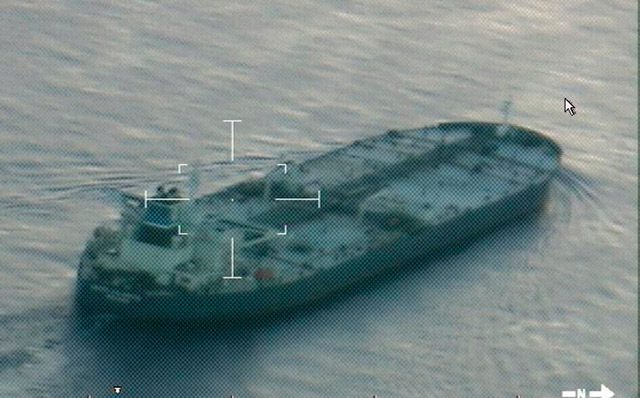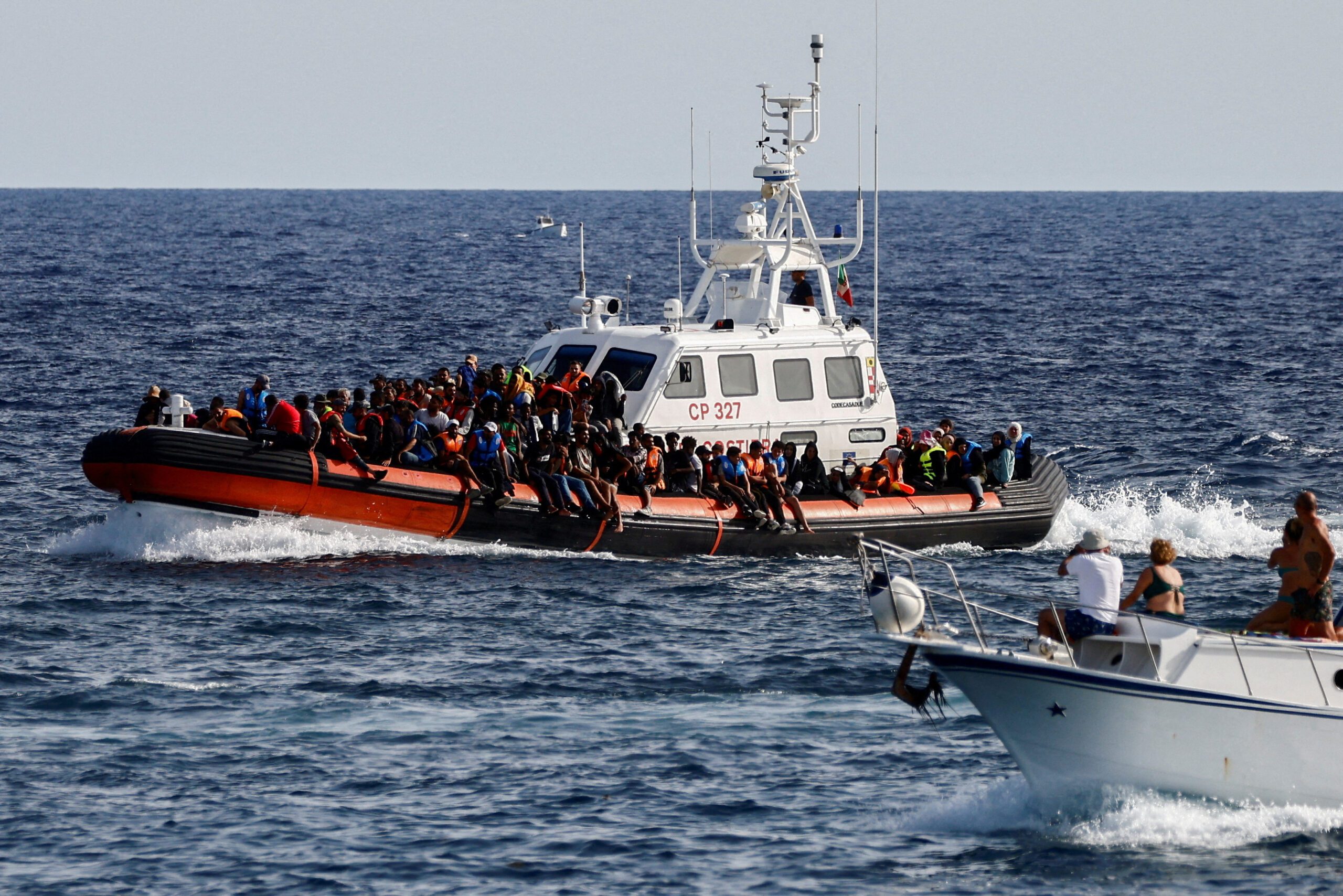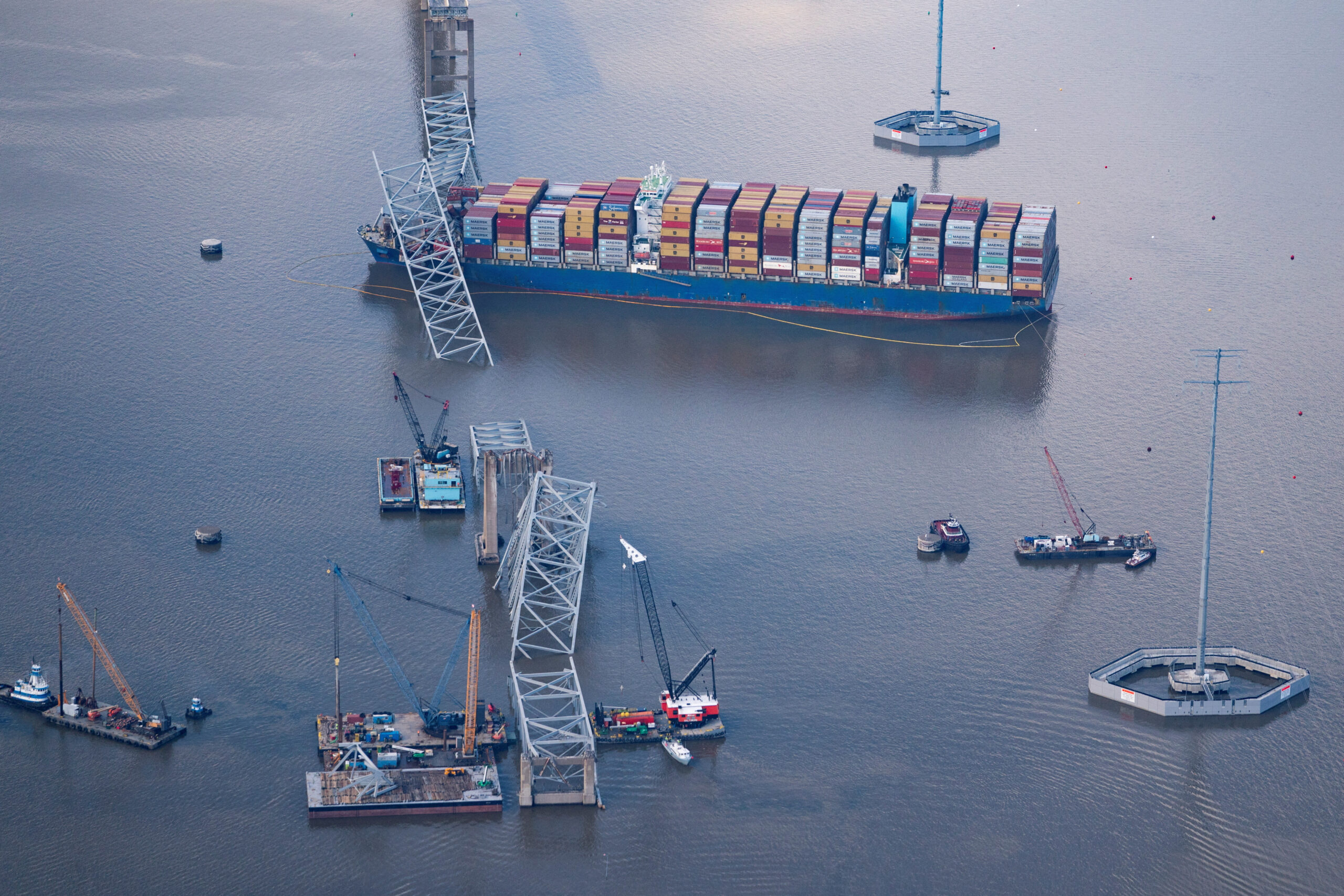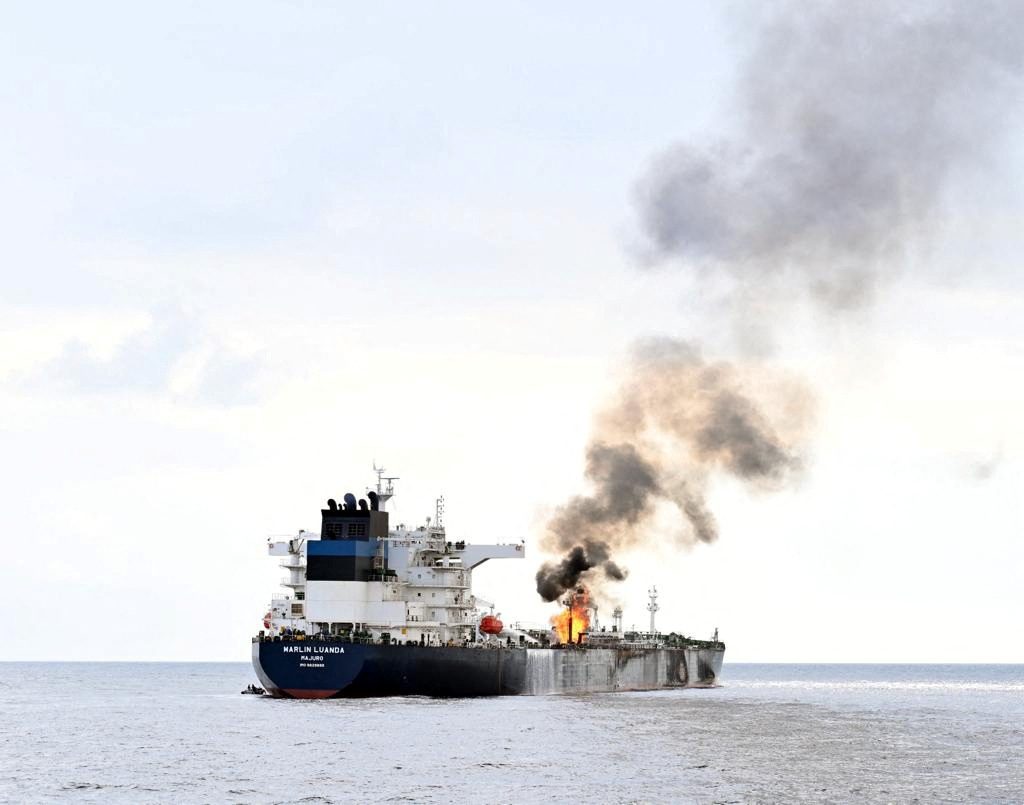A still image from video taken by a U.S. Coast Guard HC-144 Ocean Sentry aircraft shows the oil tanker United Kalavyrta (also known as the United Kalavrvta), which is carrying a cargo of Kurdish crude oil, approaching Galveston, Texas July 25, 2014. REUTERS/US Coast Guard
By Harry R. Weber and Laurel Calkins
Aug. 29 (Bloomberg) — A tanker carrying 1 million barrels of disputed Kurdish oil remains off Texas, according to the vessel’s operator.
The United Kalavryta, which left Ceyhan, Turkey, on June 23 and arrived off the coast of Galveston July 26, couldn’t be detected earlier this week, with no updates from the tanker’s Automated Identification System’s transponder from early Aug. 26 until today.
The tanker is caught up in a protracted legal fight in Iraq over rights to Kurdish oil production and billions of dollars in overdue payments claimed by the Kurds. The U.S. government recognizes Kurdistan as part of Iraq. While a federal judge this week lifted an order that had authorized the seizure of the cargo if it came into U.S. waters, Iraq has more legal options available.
“The M/T United Kalavryta is still anchored off Galveston awaiting charterer’s discharge orders,” Lygia Pirounaki, a spokeswoman for Marine Management Services M.C. of Piraeus, Greece, said today in an e-mail.
Three companies that offer lightering services to tankers too big to come through the Houston Ship Channel said they haven’t been hired to offload the oil onto smaller ships. The firm originally hired for the job, AET Inc., said in a statement in late July that it would not be providing the service.
Detecting Ships
The ship was anchored about 60 miles (100 kilometers) southeast of Galveston in the Gulf of Mexico as of early today, according to AIS data compiled by Bloomberg. It’s draft was 16.3 meters, unchanged from earlier in the week.
Ships are fitted with transponders that signal vessel positions to both land-based antennas and satellites to help improve safety at sea. There can be periods when signals aren’t captured. Some long-range antennas maintained by the U.S. Coast Guard that the tracking companies use had been discontinued recently for budgetary reasons, said Petty Officer Andy Kendrick yesterday in a phone interview.
A federal judge in Houston said in an order Aug. 25 that he lacks authority to stop the Kurdish government from bringing the approximately $100 million of crude ashore in Texas. He threw out a seizure order that would have required federal agents to hold the cargo for the Iraqi Oil Ministry until a court there decided who owns the oil. That would have only applied if the vessel entered U.S. territorial waters, and during the dispute it has been in international waters about 60 miles offshore.
The Iraqi government can appeal the latest decision. As of today, it hasn’t done so. Lawyers for the Kurdish regional government and the Iraqi government declined to comment.
Several Options
Jonathan Gutoff, who teaches maritime and piracy law at Roger Williams University School of Law in Rhode Island, said the Iraqis still have several legal options to try to block the Kurds from selling oil in the U.S.
While other federal judges will likely respect the Houston judge’s decision and refuse to issue seizure orders on Kurdish crude in tankers approaching any U.S. port, the Iraqis can still take their case to state courts, he said.
Once Kurdish crude enters state waters or comes ashore, Gutoff said, the Iraqi Oil Ministry can ask a state judge to seize it and determine ownership under state laws governing stolen property. If the parties request it, that judge can even use Iraqi constitutional law to decide the dispute.
“Houston judges are more than capable of doing that,” Gutoff said, given the enormous volume of international trade that ships through Houston, the largest U.S. port by foreign tonnage. “They do it using Mexican law all the time,” and any judge who finds the oil is stolen property “has the power to award it to the rightful owners,” he said.
As a result, any crude buyer or company that contracts to offload the tanker will require a KRG indemnity reimbursing all legal defense costs if they get sued. Without that protection, Gutoff said, “who would want to take that risk?”
Copyright 2014 Bloomberg.
Unlock Exclusive Insights Today!
Join the gCaptain Club for curated content, insider opinions, and vibrant community discussions.

 Join The Club
Join The Club













